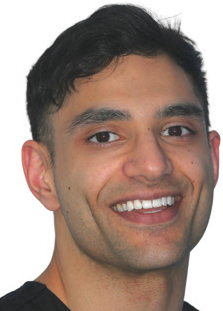Article


I write this on a cramped return flight from Athens, where I have just had the pleasure of sitting the exam for provisional membership of the European Board of Orthodontics (EBO). This came hot on the heels of the Intercollegiate Specialty Fellowship Exam, which I sat at the culmination of 5 years of orthodontic training, some 3 weeks ago.
When consenting the EBO patients for use of their records, I informed them that ‘I had in fact completed all the orthodontic exams that the UK had to offer, and was on the search for even more challenges’. This was met with general bemusement because few people, not least my patients, could understand why one would subject themselves to further pressure and invite more scrutiny into the quality of their professional work.
So, why sit the EBO? Well firstly, because it's there to be done, and there will always be some of us that enjoy challenge for its own sake. I accept this will not be a compelling argument for those not orientated in this way.
So, why else take on this challenge? Perhaps because we only really see our flaws if we look, and we often only look if we are compelled to. The EBO was instituted as a means of improving standards in clinical orthodontics. Applicants are invited to submit cases that, in their view, have achieved the highest possible standard of finish, for a precisely defined set of malocclusions. One must sit down with the start and finish records, prepared to the exacting standards of the EBO, and scrutinize every single outcome of one's orthodontic ministrations. I am not claiming this is a quick or easy process, but it is an absolute revelation. In a world where less clinically inclined reflection is mandated, at each and every step of the training process, and by our professional regulator, is this not the essence of what it really takes to learn and improve the clinical delivery of orthodontics?
COVID-19 has much to answer for. One of the many impacts of the pandemic was a near-universal disruption to healthcare training the world over. Orthodontics was no exception, and so candidates in my cohort for the Membership in Orthodontics (MOrth) exam were permitted to submit unfinished cases. Although proportionate, and most welcome at the time, it was easy to be left feeling as if the entire process was somehow incomplete. For me, finishing and submitting cases for the scrutiny of the EBO examiners somehow addressed this deficit. With the removal of personally treated cases from one iteration of the MOrth, why would one not aim to reap the rewards for 3 years of toil by submitting their clinical work for validation by the EBO?
Every UK exam I have taken in the preceding decade has been delivered with the examiners embodying some notion of warm neutrality. I fully appreciate the ‘fairness’ and ‘reproducibility’ to which this approach to assessment aspires, but if you only ever perform in such sterility, you never really gain insight into how you might perform when the discussion flows more freely and gains a decidedly more European flavour. This was something the oral ‘interview’ of the EBO delivered rather well.
In preparing for the EBO, I consulted with several friends and colleagues and invited them to cast a critical eye over many of my completed cases. This peer review was a tremendous learning tool and I invariably felt that this garnered some investment from them into my own performance. As a result, my successes felt less individual and much more of a team effort. I would like to again extend my gratitude to all of them.
Finally, although Edinburgh and Glasgow have charm in spades, they struggle to compete with the ineffable pleasure of a Greek summer's day, basking in the shadow of the Acropolis, taking a moment to relax after successful completion of one professional challenge…before embarking on the next one.

